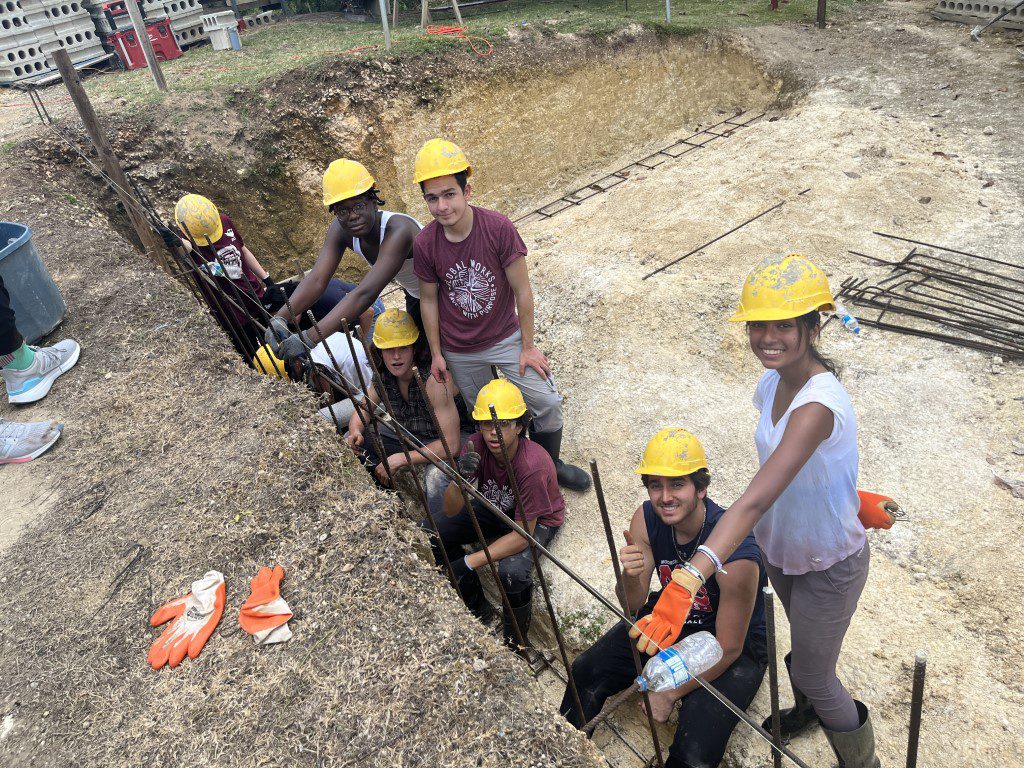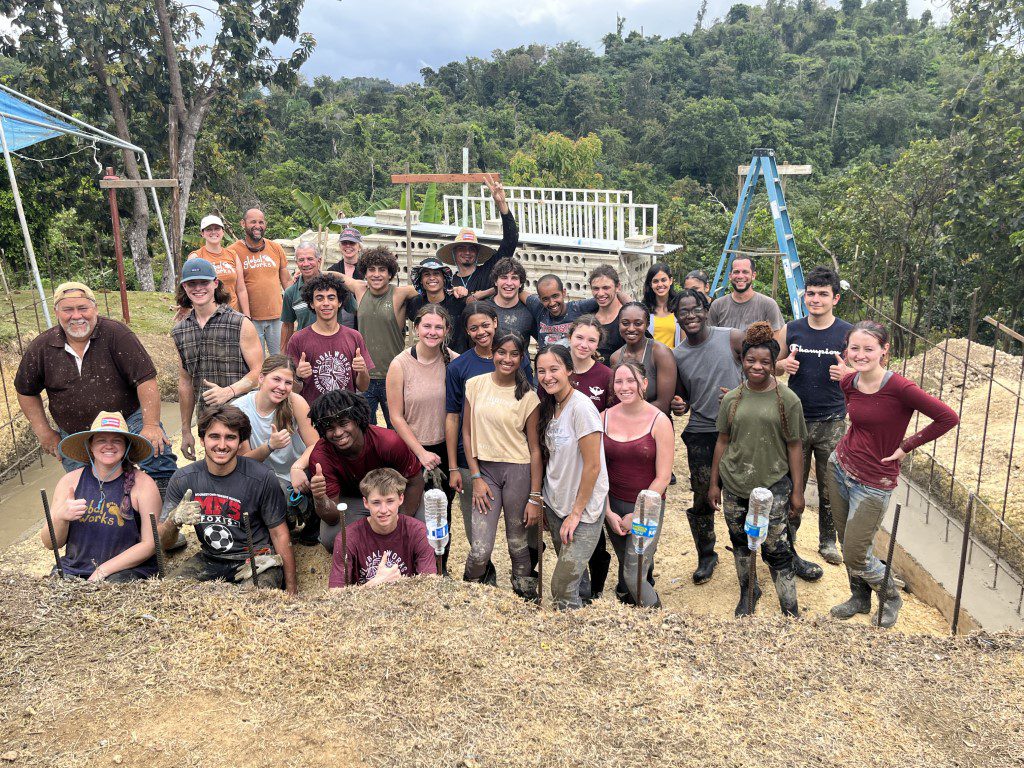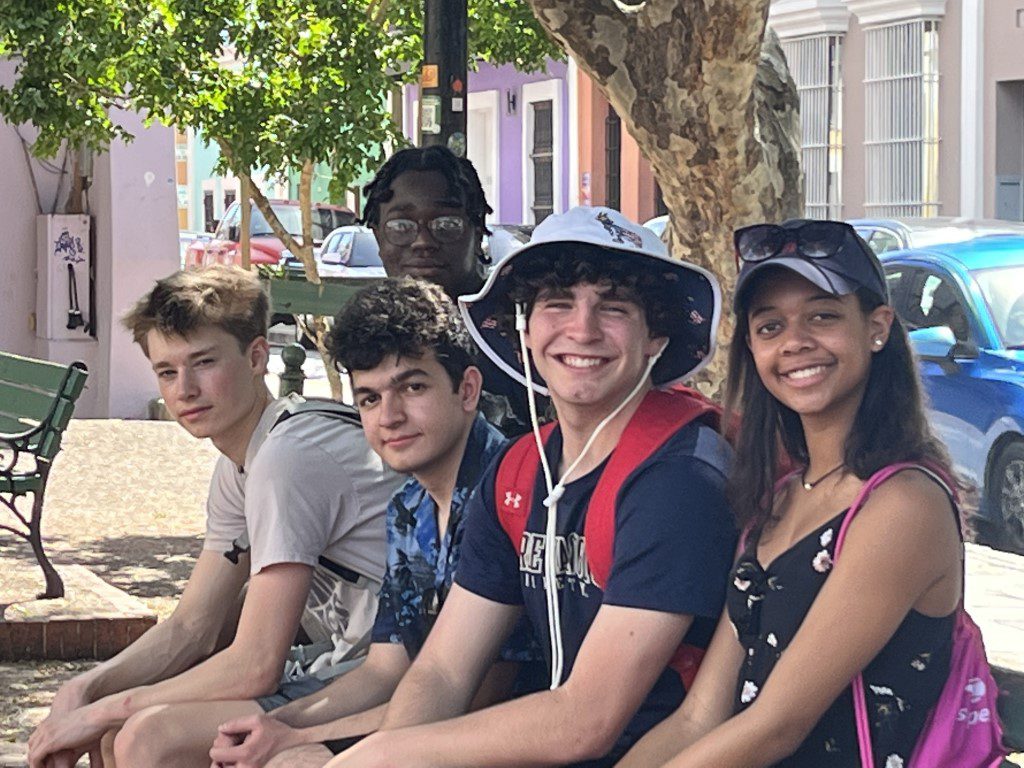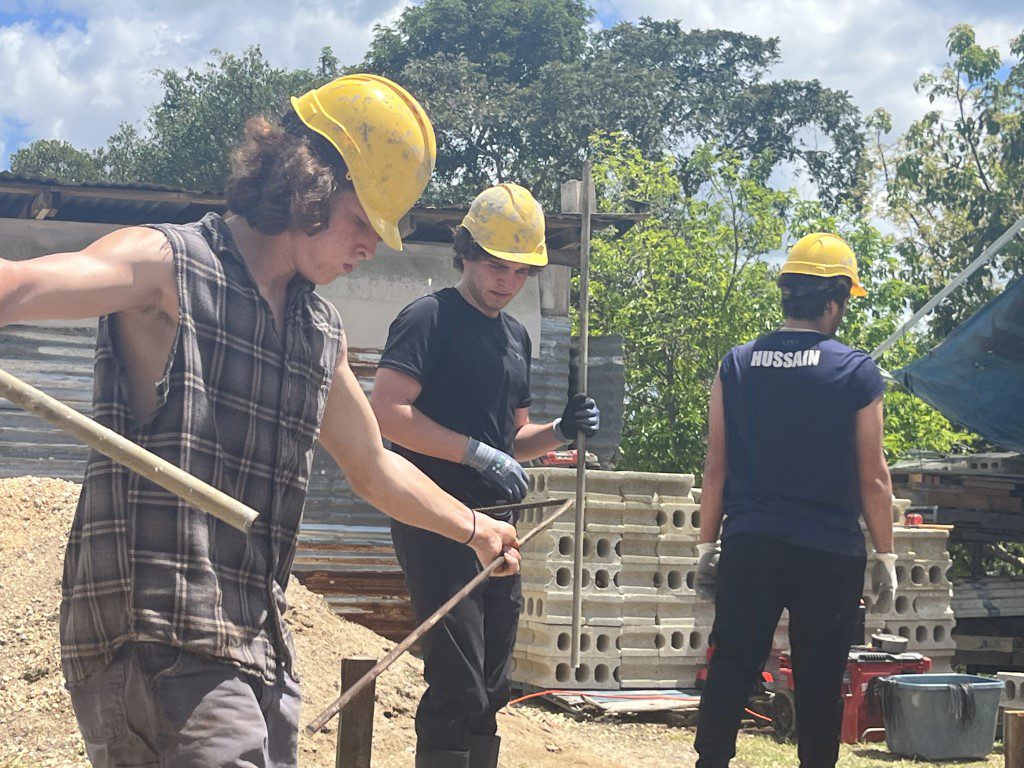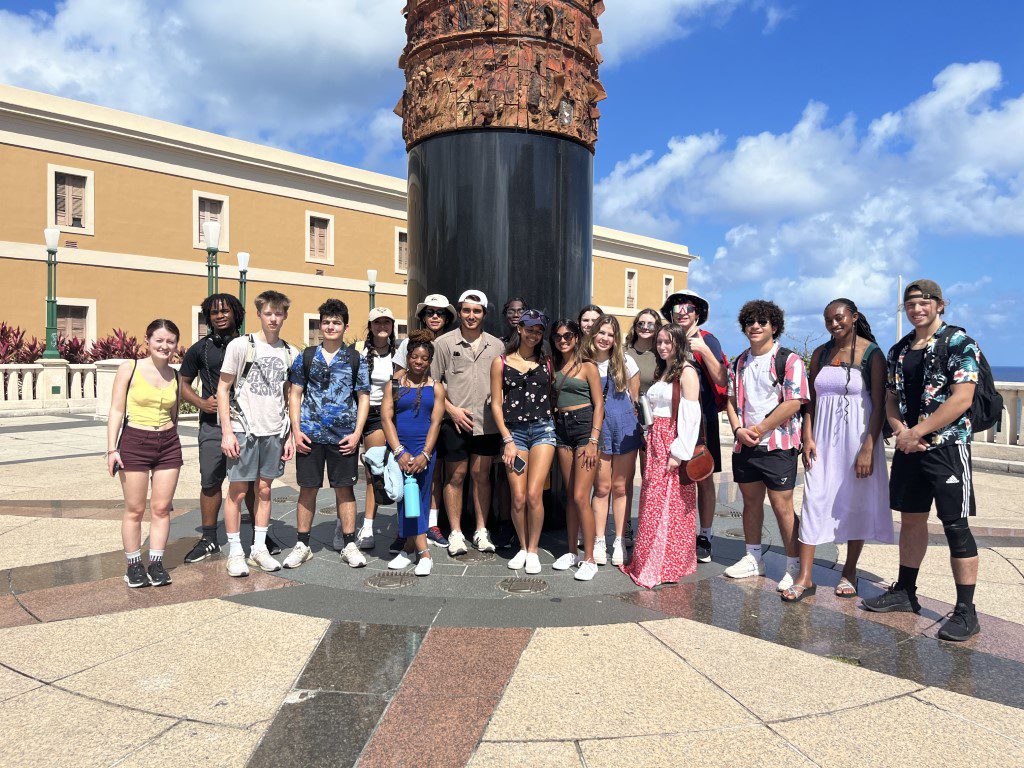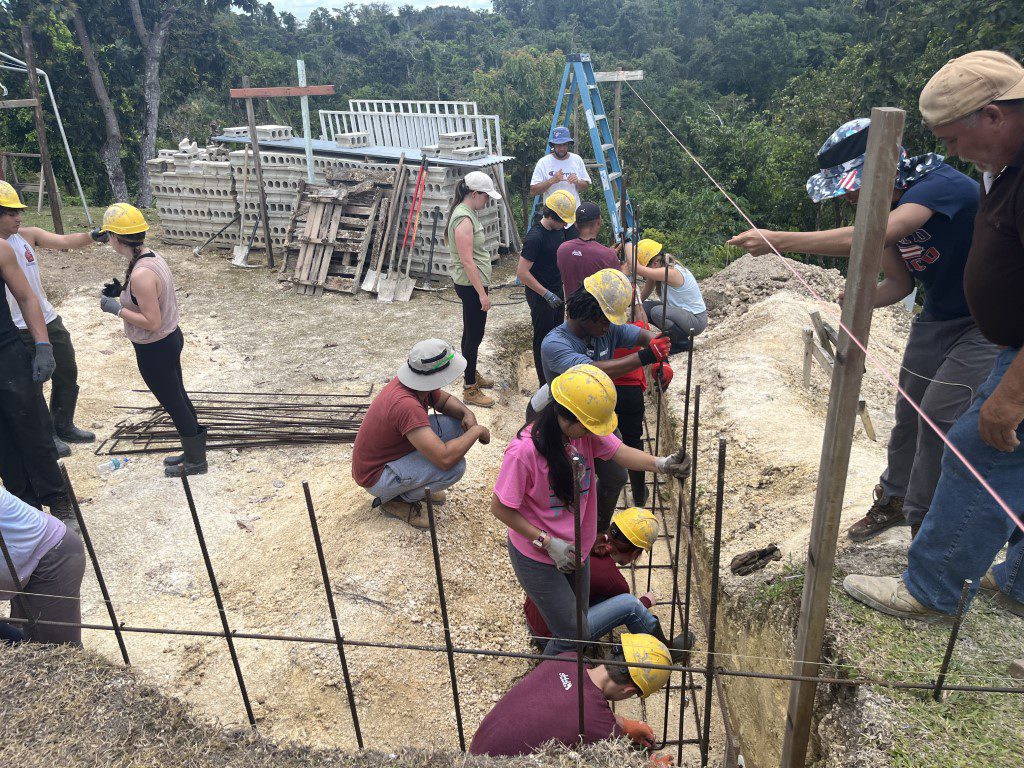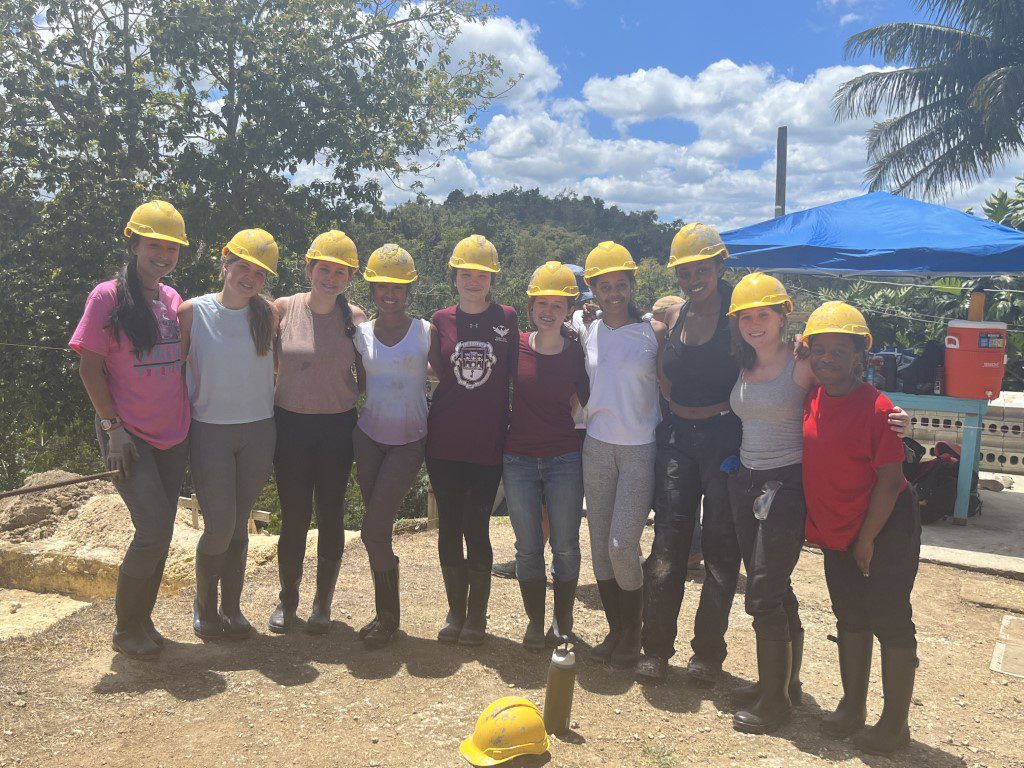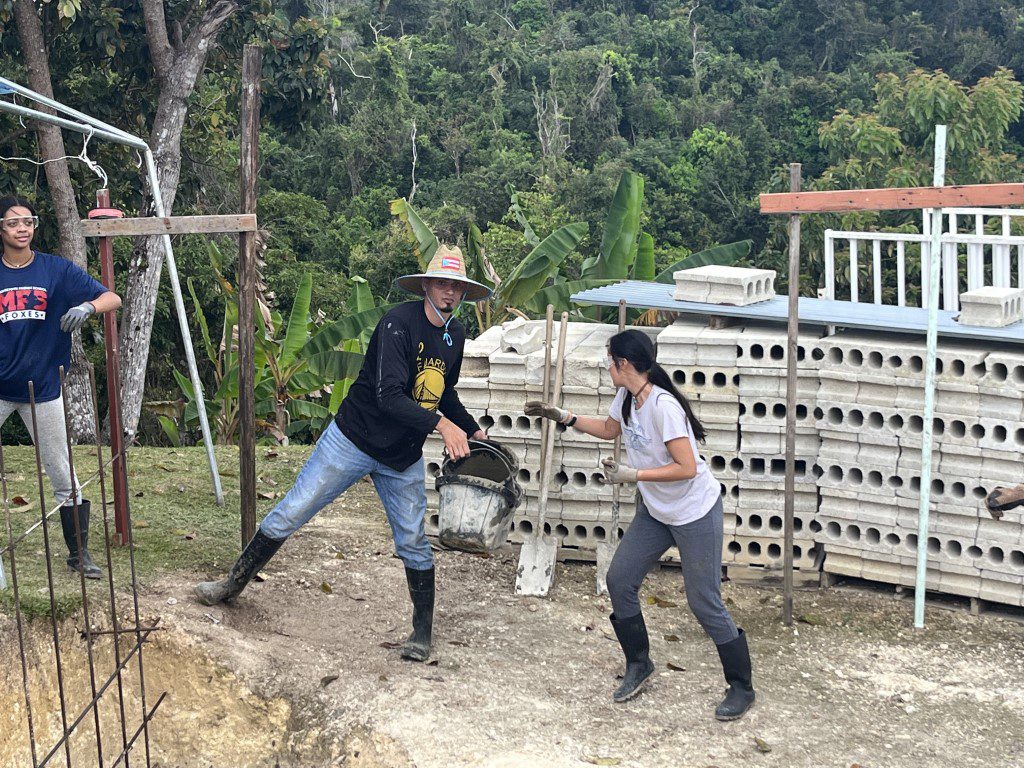Upper School Intensive Learning Spotlight: Puerto Rico
A group of Upper School students enjoyed a week of service and adventure, while learning about the native culture, during a trip to Puerto Rico for Intensive Learning in late March.
The trip kicked off with a tour of Old San Juan on March 26, which included the second oldest church in the Western Hemisphere (Catedral de San Juan Batista), La Casa Estrecha (The Narrow House, the narrowest residence in Puerto Rico), El Morro, and the Governor’s mansion.
Two days of service work followed in the town of Vega Alta, which is west of San Juan. There, the group conducted relief from damage done by Hurricane Maria in 2017. The group was guided by their construction expert Ángel, to help build an addition to a home in need of extra space. They helped to dig the foundation and to make rebar for the skeleton of the home. All of the students learned to make cement using sand, rocks, and water.
The last day of the trip featured a very relaxing detour to El Yunque National Rainforest, where the group dove into a natural spring. That was followed by an evening kayak excursion through the waters of the magnificent Fajardo bioluminescent bay
Each day included time for fun and relaxation which varied from time on the beach to hiking to sightseeing and games. Meals were also an opportunity for the group to discuss goals at the beginning of the trip and to discuss progress and learn more about each other. The trip was a “work hard/play hard” experience that was organized by Global Works to help with the continued restoration of the beautiful and culturally rich island of Puerto Rico.
You can read much more about this experience at the 2023 MFS Intensive Learning blog, where you can also read about all other Upper School Intensive Learning trips and experiences.
This is one in a series of 2023 Intensive Learning Spotlights. For one week each March, regular classes are suspended for “Intensive Learning,” when Middle and Upper School students and teachers engage in an in-depth study of a specific subject, often involving off-campus research. This long-standing MFS tradition — which dates back to the mid 1970s — allows teachers and students to break out of the structure of formal class periods and traditional study for a time of experiential learning. Both students and teachers are encouraged to view themselves as life-long learners and students of the world around them.

